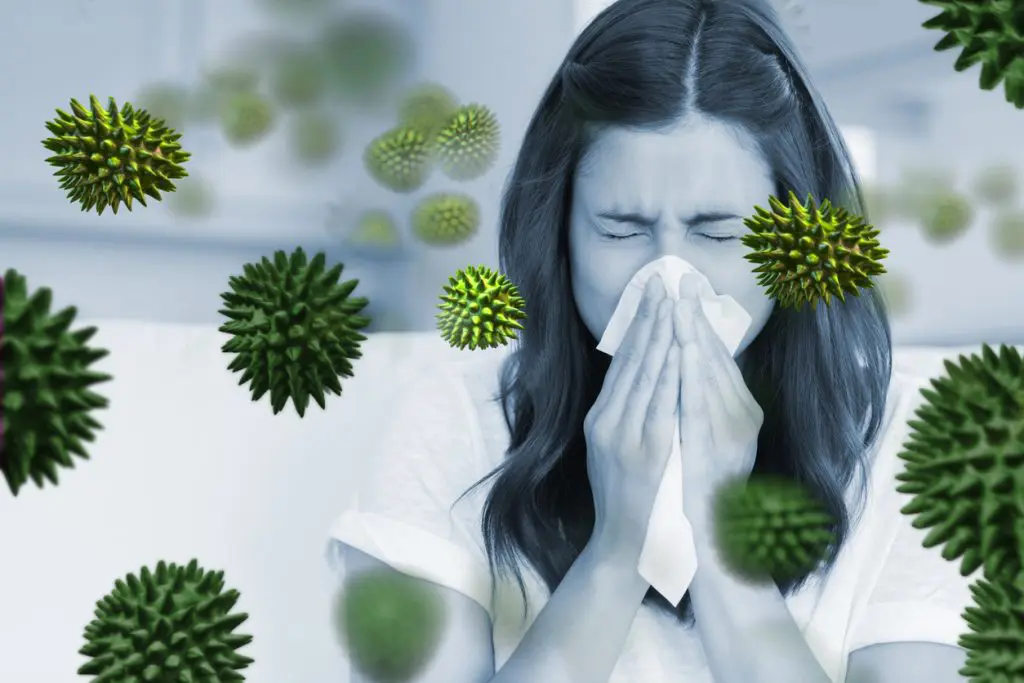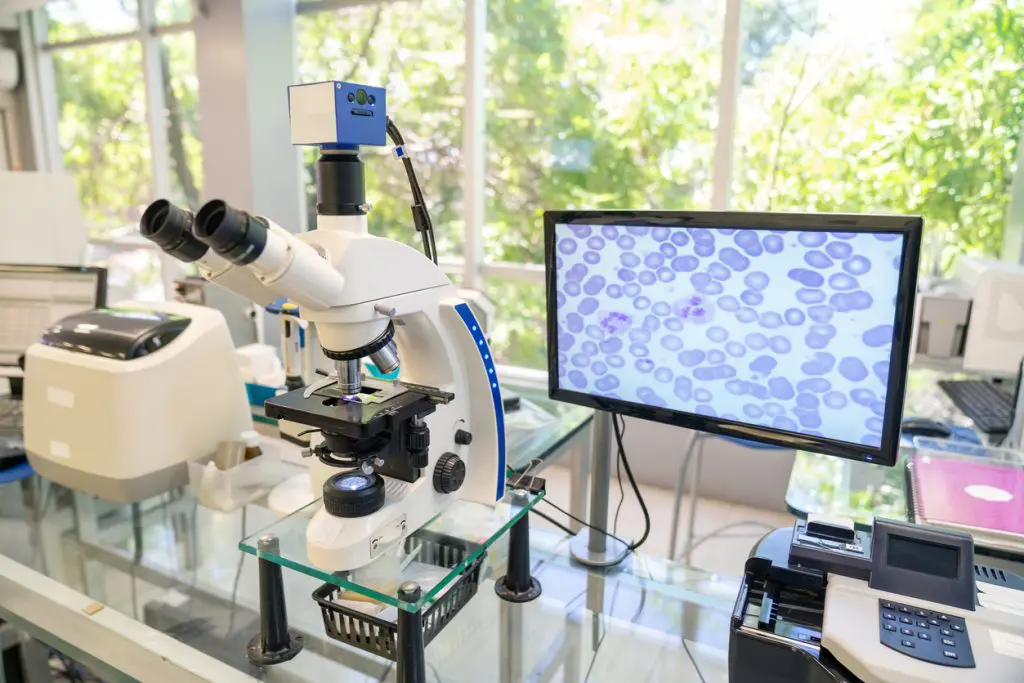In recent decades, allergies have become increasingly prevalent in the United States, affecting millions of individuals of all ages. What was once considered a minor inconvenience for some has evolved into a significant health concern that demands attention and understanding. Allergies occur when the immune system reacts excessively to substances that are typically harmless, triggering a range of symptoms from mild discomfort to life-threatening reactions. The diversity of allergens—from seasonal pollens to everyday foods—means that almost everyone is susceptible to developing an allergy at some point in their lives.
Understanding and managing allergies is crucial for maintaining optimal health and well-being. Allergic reactions can manifest in various forms, including sneezing, itching, swelling, and in severe cases, difficulty breathing or anaphylactic shock. This guide aims to equip every individual with the knowledge needed to identify, treat, and prevent allergies effectively. By adopting proactive measures and making informed choices about treatments and lifestyle adjustments, individuals can significantly reduce the impact of allergies on their daily lives and enjoy better overall health. Whether you’re navigating the challenges of seasonal allergies or managing a chronic condition, this guide will provide essential insights and practical strategies to help you live comfortably in a world full of potential allergens.

What Are Allergies?
Allergies are immune system reactions to substances that are typically harmless to most people. When someone with allergies comes into contact with an allergen, their immune system mistakenly identifies it as a threat and produces antibodies to attack it. This immune response triggers the release of chemicals like histamine, which causes allergic symptoms. The types of allergens vary widely and can include pollen from trees and grasses, pet dander, dust mites, mold spores, certain foods (such as peanuts or shellfish), and even medications.
Symptoms of allergies can range from mild to severe and may affect different parts of the body. Common symptoms include sneezing, runny or stuffy nose, itchy or watery eyes, skin rashes or hives, swelling, and in severe cases, difficulty breathing or anaphylaxis—a life-threatening reaction. Allergies can develop at any age and may be influenced by genetic factors and environmental exposures. It’s important for individuals to be aware of potential allergens in their surroundings and to seek medical advice if they suspect they have allergies.
Understanding the nature of allergies empowers individuals to take proactive steps in managing their health. By identifying triggers, minimizing exposure to allergens, and exploring treatment options such as medications or allergen immunotherapy, individuals can effectively control allergic reactions and improve their quality of life. This guide will delve deeper into specific allergens, symptoms, diagnosis, and strategies for prevention and treatment, providing essential knowledge for navigating the complex landscape of allergies in everyday life.
How Allergies Develop: Tips for Understanding
Genetic Factors: Allergies often have a genetic component, so if allergies run in your family, you may be more susceptible. Knowing your family history can help you recognize potential allergens and take preventive measures.
Environmental Exposures: Exposure to allergens such as pollen, dust mites, pet dander, and certain foods can trigger allergic reactions. Pay attention to your surroundings and minimize exposure where possible, especially during peak allergy seasons.
Immune System Response: Allergies develop when your immune system overreacts to substances it perceives as harmful, releasing chemicals like histamine that cause symptoms. Understanding this immune response can help you manage allergies more effectively with proper treatment and avoidance strategies.
Common Allergens
- Pollens
Pollens are tiny grains released by trees, grasses, and weeds as part of their reproductive process. These airborne particles can trigger seasonal allergic rhinitis (hay fever) in susceptible individuals. Symptoms may include sneezing, runny or stuffy nose, itchy eyes, and throat irritation. To minimize pollen exposure, keep windows closed during high pollen seasons, use air filters indoors, and shower after outdoor activities. Medications like antihistamines can alleviate symptoms, but consult a healthcare professional for personalized advice.
- Dust mites
Dust mites are microscopic creatures that thrive in household dust, bedding, and upholstered furniture. They can trigger allergic reactions, including sneezing, coughing, and wheezing, particularly in those with sensitivities. Reduce dust mite exposure by washing bedding weekly in hot water, using allergen-proof covers on mattresses and pillows, and vacuuming regularly with a HEPA filter. Consider minimizing carpeted areas where dust mites accumulate. Consult with a healthcare provider for effective allergy management strategies, including medications and environmental controls.
- Mold spores
Mold spores are tiny particles released by molds, which grow in damp and humid environments indoors and outdoors. Exposure to mold spores can trigger allergic reactions such as sneezing, coughing, itchy eyes, and skin irritation. To reduce exposure, keep indoor humidity levels below 50% and promptly fix any water leaks or damp areas. Use exhaust fans in bathrooms and kitchens to vent moisture outside. Regularly clean and inspect areas prone to mold growth, such as bathrooms, basements, and kitchens. Consider using a dehumidifier in damp spaces. If allergic symptoms persist, consult a healthcare provider for appropriate diagnosis and management options.
- Pet dander
Pet dander consists of tiny, airborne particles of skin shed by animals with fur or feathers. It can trigger allergic reactions in sensitive individuals, causing symptoms like sneezing, runny nose, itchy eyes, and skin rash. To minimize exposure, keep pets out of bedrooms and off upholstered furniture. Bathe pets regularly and groom them outdoors to reduce dander. Vacuum carpets and furniture frequently using a vacuum cleaner with a HEPA filter. Consider allergy-friendly pets such as hypoallergenic breeds or pets without fur. Consult with a healthcare provider for personalized advice on managing pet allergies, including medications and allergen avoidance strategies.
- Foods (peanuts, milk, eggs, etc.)
Certain foods like peanuts, milk, eggs, and shellfish can cause allergic reactions in susceptible individuals. Symptoms can range from mild itching and swelling to severe anaphylaxis, a life-threatening reaction. It’s crucial to read food labels carefully and ask about ingredients when dining out to avoid allergens. If you have known food allergies, carry an epinephrine auto-injector (e.g., EpiPen) and know how to use it in case of an emergency. Consult with an allergist for proper diagnosis through allergy testing and personalized management strategies.
- Medications
Medications play a key role in managing allergies and relieving symptoms. Antihistamines are commonly used to reduce sneezing, itching, and runny nose. Decongestants can alleviate nasal congestion. Nasal sprays help reduce inflammation and congestion in the nasal passages. For severe allergies, allergists may prescribe corticosteroids or recommend allergy shots (immunotherapy) to desensitize the immune system over time. It’s important to use medications as directed and consult with a healthcare provider for personalized advice on the best treatment options for your allergies.
Symptoms of Allergies
Allergic reactions vary widely in their presentation and severity, depending on the allergen and individual sensitivity. Common symptoms include sneezing, which helps expel allergens from the nose; a runny or congested nose due to inflammation of nasal passages; and itchy, watery eyes caused by histamine release. Skin reactions like hives or eczema may also occur, often presenting as red, itchy patches. For some individuals, allergies manifest in respiratory symptoms such as coughing, wheezing, or shortness of breath, particularly in those with asthma.
In severe cases, allergies can lead to anaphylaxis, a life-threatening condition marked by difficulty breathing, swelling of the throat or tongue, rapid pulse, and a drop in blood pressure. Immediate medical attention is crucial if anaphylaxis is suspected. Recognizing allergic symptoms early allows for prompt treatment and management. Over-the-counter antihistamines, nasal sprays, and decongestants can provide relief for mild to moderate symptoms. However, it’s essential to consult with a healthcare professional, especially if symptoms are persistent or severe, to determine the underlying cause of allergies and explore appropriate treatment options tailored to your specific needs. Understanding and monitoring allergic symptoms empower individuals to take proactive steps in managing their health and minimizing the impact of allergies on their daily lives.
Diagnosis
Diagnosing allergies involves a thorough evaluation by a healthcare professional, typically an allergist or immunologist. The process begins with a detailed medical history to identify potential allergens and understand the nature of symptoms experienced. Allergy testing may be conducted using skin tests or blood tests.
Skin tests involve pricking the skin with a small amount of allergen extract and observing for a reaction, such as redness or swelling. Blood tests measure the presence of specific antibodies (IgE) in response to allergens. These tests help determine the substances triggering allergic reactions. It’s important to note that allergy tests should be interpreted by trained medical professionals to ensure accuracy and proper diagnosis.
For individuals with severe allergies or unclear symptoms, additional tests or consultations may be necessary to pinpoint triggers accurately. Keeping a symptom diary and noting exposure to potential allergens can provide valuable information during the diagnostic process. Once allergies are identified, healthcare providers can recommend appropriate treatment strategies, including medications, allergen avoidance techniques, and in some cases, allergen immunotherapy to desensitize the immune system. Regular follow-ups with healthcare providers help monitor allergic conditions and adjust management plans as needed to ensure optimal health and quality of life.
Allergy Testing Methods (Skin Tests, Blood Tests)
Skin Tests:
- Prick Test: Small amount of allergen is pricked into the skin surface; redness or swelling indicates an allergic reaction.
- Intradermal Test: Allergen is injected deeper into the skin; used for detecting allergies to medications or insect venom.
Blood Tests (Allergy Panel):
- Measures specific IgE antibodies in blood against common allergens like pollen, pet dander, foods, and molds.
- Useful for individuals unable to undergo skin tests due to skin conditions or medication use.
Consultation and Interpretation:
- Tests are performed and interpreted by allergists or immunologists.
- Results guide personalized allergy management plans, including medication, allergen avoidance, and immunotherapy.
Preparation:
- Skin tests require discontinuing antihistamines beforehand to ensure accuracy.
- Blood tests typically do not require special preparation.
Importance of Consulting a Healthcare Professional
Consulting a healthcare professional, such as an allergist or immunologist, is crucial for accurate diagnosis and effective management of allergies. These specialists have the expertise and tools to perform allergy testing, interpret results, and identify specific allergens triggering your symptoms. They can also recommend personalized treatment plans tailored to your individual needs, which may include medications, allergen avoidance strategies, or allergen immunotherapy (allergy shots). Furthermore, healthcare professionals can provide guidance on how to recognize and respond to severe allergic reactions, ensuring your safety and well-being. Seeking professional advice allows you to take proactive steps in managing allergies and improving your quality of life.
Treatment Options
Managing allergies effectively involves a range of treatment options aimed at alleviating symptoms and reducing allergic reactions. Antihistamines are commonly used to block histamine—the chemical responsible for allergy symptoms such as sneezing and itching. They are available over-the-counter or by prescription in various forms, including pills, liquids, and nasal sprays. Decongestants help relieve nasal congestion by shrinking swollen nasal passages, though they should be used cautiously and for short durations to avoid rebound congestion.
For individuals with moderate to severe allergies, corticosteroids may be prescribed to reduce inflammation and alleviate symptoms such as nasal congestion and skin irritation. Allergy shots, or immunotherapy, are another option for those with allergies not well-controlled by medications or allergen avoidance. This treatment involves gradually exposing the immune system to small amounts of allergens to desensitize it over time, reducing the severity of allergic reactions.
It’s important to work closely with a healthcare provider to determine the most appropriate treatment plan based on your specific allergies and medical history. They can also provide guidance on allergen avoidance strategies and emergency plans for managing severe allergic reactions, ensuring you can effectively manage allergies and maintain a high quality of life.
Medications (Antihistamines, Decongestants)
- Antihistamines:
- Block histamine, reducing symptoms like sneezing, itching, and runny nose.
- Available over-the-counter or by prescription in various forms (pills, liquids, nasal sprays).
- Commonly used for mild to moderate allergy symptoms.
- Decongestants:
- Reduce nasal congestion by shrinking swollen nasal passages.
- Available in oral or nasal spray forms.
- Use caution with decongestants to avoid rebound congestion; short-term use recommended.
Allergy Shots (Immunotherapy)
Allergy shots, also known as allergen immunotherapy, are a treatment option for individuals with allergies not well-controlled by medications or allergen avoidance alone. This therapy involves regular injections of small amounts of allergens, such as pollen or pet dander, to desensitize the immune system over time. The goal is to reduce the severity of allergic reactions and symptoms.
Before starting allergy shots, a healthcare provider will conduct allergy testing to identify specific allergens triggering your symptoms. The treatment schedule typically involves receiving injections regularly over a period of several months to years, with the frequency gradually decreasing as tolerance to allergens builds. Allergy shots can effectively reduce symptoms and the need for medications in some individuals, but they require commitment and regular follow-ups with healthcare providers to monitor progress and adjust treatment as needed.
If you’re considering allergy shots, discuss with your allergist or immunologist to determine if this treatment is appropriate for you based on your allergies, medical history, and treatment goals. They can provide personalized advice and address any questions or concerns you may have about allergen immunotherapy.
Natural Remedies and Their Effectiveness
- Saline Nasal Rinses:
- Helps flush out allergens and reduce nasal congestion.
- Can be done using a neti pot or saline nasal spray.
- Honey:
- Some believe local honey may help with seasonal allergies, though scientific evidence is limited.
- Use caution if allergic to bee stings or pollen.
- Probiotics:
- May help regulate the immune system and potentially reduce allergy symptoms.
- Found in yogurt, kefir, and probiotic supplements.
- Quercetin:
- A plant-based flavonoid with antioxidant properties; may have anti-inflammatory effects.
- Often found in foods like apples, onions, and berries.
- Butterbur:
- Herbal supplement that may relieve symptoms of hay fever.
- Consult a healthcare provider before using, as it can interact with medications.
- Acupuncture:
- Traditional Chinese therapy that some find helpful for allergy relief.
- Effectiveness varies; consult with a qualified practitioner.
Preventive Measures
Taking proactive steps to minimize exposure to allergens can significantly reduce the frequency and severity of allergic reactions. Start by identifying common triggers such as pollen, dust mites, pet dander, and certain foods, and implement strategies to avoid or reduce contact with these allergens. During high pollen seasons, keep windows closed and use air conditioning with a HEPA filter to improve indoor air quality. Regularly vacuum carpets and use allergen-proof covers on mattresses and pillows to reduce exposure to dust mites. Additionally, consider using a dehumidifier to maintain humidity levels below 50% to inhibit mold growth in damp areas like bathrooms and basements.
For those with food allergies, carefully read ingredient labels and ask about food preparation methods when dining out to avoid allergens. If you have pets, bathe them regularly and groom them outdoors to minimize pet dander. Taking these preventive measures not only helps manage allergies but also promotes a healthier indoor environment overall. If allergen exposure cannot be completely avoided, consider using medications like antihistamines or nasal sprays as a preventive measure before symptoms occur. Consult with a healthcare provider for personalized advice on allergen avoidance strategies and effective management of allergies, ensuring you can enjoy a more comfortable and symptom-free lifestyle.

Environmental Control (Air Filters, Allergen-Proof Bedding)
- Air Filters:
- Use HEPA filters in air conditioning units and vacuums to trap airborne allergens like pollen, dust mites, and pet dander.
- Change filters regularly to maintain effectiveness and improve indoor air quality.
- Allergen-Proof Bedding:
- Encase mattresses, pillows, and duvets with allergen-proof covers to create a barrier against dust mites and their allergens.
- Wash bedding weekly in hot water to further reduce allergen exposure.
Dietary Precautions (Label Reading, Avoidance Strategies)
- Label Reading:
- Check ingredient labels carefully for potential allergens such as peanuts, milk, eggs, and wheat.
- Look for allergen warnings and cross-contamination risks, especially in processed and packaged foods.
- Avoidance Strategies:
- Communicate food allergies to restaurant staff and inquire about ingredients and food preparation methods.
- When uncertain, choose simple, unprocessed foods to minimize the risk of allergen exposure.
Lifestyle Adjustments (Pet Care, Gardening Tips)
- Pet Care:
- Bathe pets regularly to reduce dander and allergens.
- Keep pets out of bedrooms and off upholstered furniture to minimize exposure.
- Gardening Tips:
- Wear a mask and gloves when gardening to reduce exposure to pollen and mold spores.
- Choose low-allergen plants for landscaping, and consider hiring help for tasks that may exacerbate allergies.
Managing Allergies in Different Seasons
Allergies can vary significantly throughout the year, depending on the prevalent allergens during each season. In spring, tree pollen is a common allergen that triggers symptoms like sneezing, runny nose, and itchy eyes. To manage spring allergies, keep windows closed during high pollen counts, shower after spending time outdoors, and use air conditioning with a HEPA filter to reduce pollen indoors. Over-the-counter antihistamines and nasal sprays can provide relief for mild symptoms, while those with severe allergies may require prescription medications or allergen immunotherapy.
Summer brings grass pollen allergies and mold spores, which thrive in warm, humid conditions. Minimize exposure by mowing lawns frequently, wearing a mask while gardening, and using a dehumidifier indoors to reduce mold growth. If allergic to insect stings, take precautions like wearing closed-toe shoes and avoiding sweet-smelling perfumes and bright-colored clothing that attract insects.
Fall allergies are often triggered by weed pollen and mold spores from decaying leaves. Keep outdoor activities to a minimum on dry, windy days when pollen counts are high, and use a leaf blower or rake to clear away leaves promptly. Consider wearing a pollen mask when doing yard work and using allergen-proof covers on bedding to minimize exposure to dust mites indoors. Understanding seasonal allergy patterns and implementing preventive measures can help individuals effectively manage symptoms and enjoy each season more comfortably.
- Spring: Dealing with pollen allergies.
- Summer: Coping with outdoor allergens.
- Fall: Strategies for managing mold and ragweed.
- Winter: Indoor allergens and cold-induced allergies.
Impact of Allergies on Daily Life
Allergies can significantly impact daily life, affecting productivity, sleep quality, and overall well-being. Symptoms such as congestion, sneezing, and itchy eyes can make it challenging to concentrate at work or school. Allergies may also disrupt sleep patterns, leading to fatigue and irritability during the day. For individuals with severe allergies or asthma, allergic reactions can occasionally necessitate missed workdays or school absences.
Social activities and outdoor hobbies may be limited during high pollen seasons or in environments with potential allergens like pet dander or mold spores. Allergies can also affect mental health, causing frustration and stress from managing symptoms and avoiding triggers. Fortunately, understanding your specific allergens and implementing effective management strategies can alleviate these challenges. This may include using medications as prescribed, maintaining a clean indoor environment, and communicating allergies to friends, family, and coworkers to ensure a supportive environment.
By working closely with healthcare providers and staying proactive in managing allergies, individuals can minimize their impact on daily life and enjoy activities with greater comfort and confidence. Regular check-ins with allergists or immunologists help adjust treatment plans as needed, ensuring ongoing relief from allergic symptoms and promoting a healthier, more balanced lifestyle.
Financial Considerations (Cost of Medications, Treatments)
Insurance Coverage:
- Check your health insurance plan for coverage of allergy medications, doctor visits, and allergy testing.
- Understand copayments, deductibles, and any restrictions on medications or treatments.
Generic Medications:
- Over-the-Counter Options:
- Explore over-the-counter antihistamines and nasal sprays as cost-effective alternatives.
- Compare prices at different pharmacies and consider purchasing larger quantities if cost-effective.
- Allergy Shots (Immunotherapy):
- Consider the long-term benefits of allergy shots despite initial costs.
- Discuss payment plans or financial assistance options with your allergist or immunologist.
- Opt for generic versions of prescribed medications when available to reduce costs.
- Discuss generic options with your healthcare provider to ensure they are suitable for your condition.
Allergies and Children
Managing allergies in children requires careful attention to symptoms and triggers, as allergic reactions can vary widely in severity and presentation. Common allergens affecting children include food allergens like peanuts, milk, and eggs, as well as environmental allergens such as pollen, dust mites, and pet dander. It’s essential for parents and caregivers to observe any unusual symptoms like hives, swelling, vomiting, or difficulty breathing after exposure to potential allergens and seek prompt medical attention if severe reactions occur.
Allergy testing may be necessary to identify specific triggers in children with suspected allergies. Depending on the allergen, treatment options can include allergen avoidance strategies, medications like antihistamines or asthma inhalers for respiratory symptoms, and emergency medications like epinephrine (EpiPen) for severe allergic reactions. Educating caregivers, teachers, and other adults in a child’s environment about their allergies and emergency response procedures is crucial for ensuring a safe environment. Regular follow-ups with pediatric allergists or healthcare providers help monitor allergies and adjust management plans as children grow and their immune systems develop. By addressing allergies early and effectively, parents can help their children lead healthier, more comfortable lives free from the limitations and risks associated with allergic reactions.
Emerging Trends and Research

Recent advancements in allergy research are offering promising insights into new treatment options and preventive strategies. One notable area of focus is biologic therapies, which target specific molecules in the immune system responsible for allergic reactions. These treatments, often administered via injection or infusion, aim to provide long-term relief for individuals with severe allergic conditions like asthma or allergic rhinitis.
Additionally, researchers are exploring the role of the gut microbiome in allergies, investigating how probiotics and prebiotics may influence immune system function and allergic responses. This area of research suggests that promoting a healthy balance of gut bacteria could potentially reduce the risk and severity of allergies. Furthermore, advancements in genetic research are shedding light on the genetic factors contributing to allergies, which may lead to personalized treatments based on individual genetic profiles.
Staying informed about emerging trends and research in allergy management can empower individuals to explore new treatment options and participate in clinical trials if appropriate. By keeping up-to-date with the latest findings, individuals and healthcare providers can work together to optimize allergy management strategies and improve quality of life for those affected by allergies.
New Treatments and Technologies
Biologic Therapies:
- Target specific molecules in the immune system to reduce allergic responses.
- Administered via injection or infusion for conditions like severe asthma or allergic rhinitis.
Sublingual Immunotherapy (SLIT):
- Allergy treatment involving placing allergen extracts under the tongue to desensitize the immune system.
- Available for common allergens like pollen and dust mites; can be self-administered at home.
Epicutaneous Immunotherapy (EPIT):
- New approach using patches containing allergen extracts applied to the skin to desensitize individuals with food allergies.
- Currently under investigation in clinical trials.
Telemedicine for Allergy Care:
- Utilizes virtual visits and digital tools to provide allergy consultations and follow-ups remotely.
- Offers convenience and accessibility, especially for individuals in rural or underserved areas.
Genetic Testing for Allergies:
- Identifies genetic factors contributing to allergies, potentially guiding personalized treatment plans.
- Helps predict risk of developing allergies and responses to specific treatments.
Genetic Research and Personalized Medicine
Personalized Treatment Plans:
- Tailors allergy management strategies based on genetic predispositions.
- Allows for more targeted medications and immunotherapy options.
Precision Medicine:
- Integrates genetic information with environmental and lifestyle factors to optimize treatment outcomes.
- Advances in genetic research aim to improve allergy diagnosis accuracy and treatment effectiveness.
Future Directions:
- Research continues to uncover new genetic insights into allergies.
- Potential for developing personalized allergy prevention strategies based on genetic profiles.
- Identifies specific genetic markers associated with allergies and allergic diseases.
- Helps predict individual risk factors and responses to treatments.
Statistics and Data
- Prevalence: Allergies affect approximately 50 million people in the United States, with both children and adults susceptible to various allergens.
- Common Triggers: Pollen allergies (hay fever) affect about 8% of adults and children, while food allergies impact approximately 32 million Americans.
- Impact on Health: Allergic rhinitis (hay fever) alone accounts for millions of lost workdays and school absences annually, impacting productivity and quality of life.
- Rising Trends: Over the past decade, there has been an increase in the prevalence of allergies, with environmental factors and changing lifestyles contributing to this rise.
Pros and Cons Table
Pros | Cons |
Effective Symptom Relief: Medications like antihistamines and nasal sprays provide quick relief from allergy symptoms. | Side Effects: Some allergy medications may cause drowsiness, dry mouth, or other side effects. |
Allergen Immunotherapy: Provides long-term reduction in allergic reactions by desensitizing the immune system to specific allergens. | Time-Consuming: Allergy shots (immunotherapy) require regular visits to the doctor’s office over several months to years. |
Advancements in Biologic Therapies: Targeted treatments for severe allergies offer promising results with fewer systemic side effects. | Cost: Allergy treatments, especially immunotherapy, can be expensive and may not always be covered by insurance. |
Environmental Control: Using air filters and allergen-proof bedding reduces allergen exposure indoors, improving respiratory health. | Effectiveness Varies: Natural remedies and alternative treatments may not provide consistent relief for all individuals. |
Genetic Testing: Offers personalized insights into allergy triggers and potential treatment responses. | Access and Availability: New treatments and technologies may not be widely accessible or covered by insurance plans. |
Conclusion
Understanding and managing allergies effectively is crucial for maintaining a healthy and comfortable lifestyle. By identifying common allergens, such as pollen, dust mites, pet dander, and certain foods, individuals can take proactive steps to minimize exposure and reduce the frequency of allergic reactions. This guide has provided comprehensive information on various allergy triggers, symptoms, diagnosis methods, and treatment options available, ranging from medications and immunotherapy to lifestyle adjustments and environmental controls.
By taking proactive steps and seeking appropriate medical guidance, individuals can effectively manage allergies and enjoy a healthier, more comfortable life.






